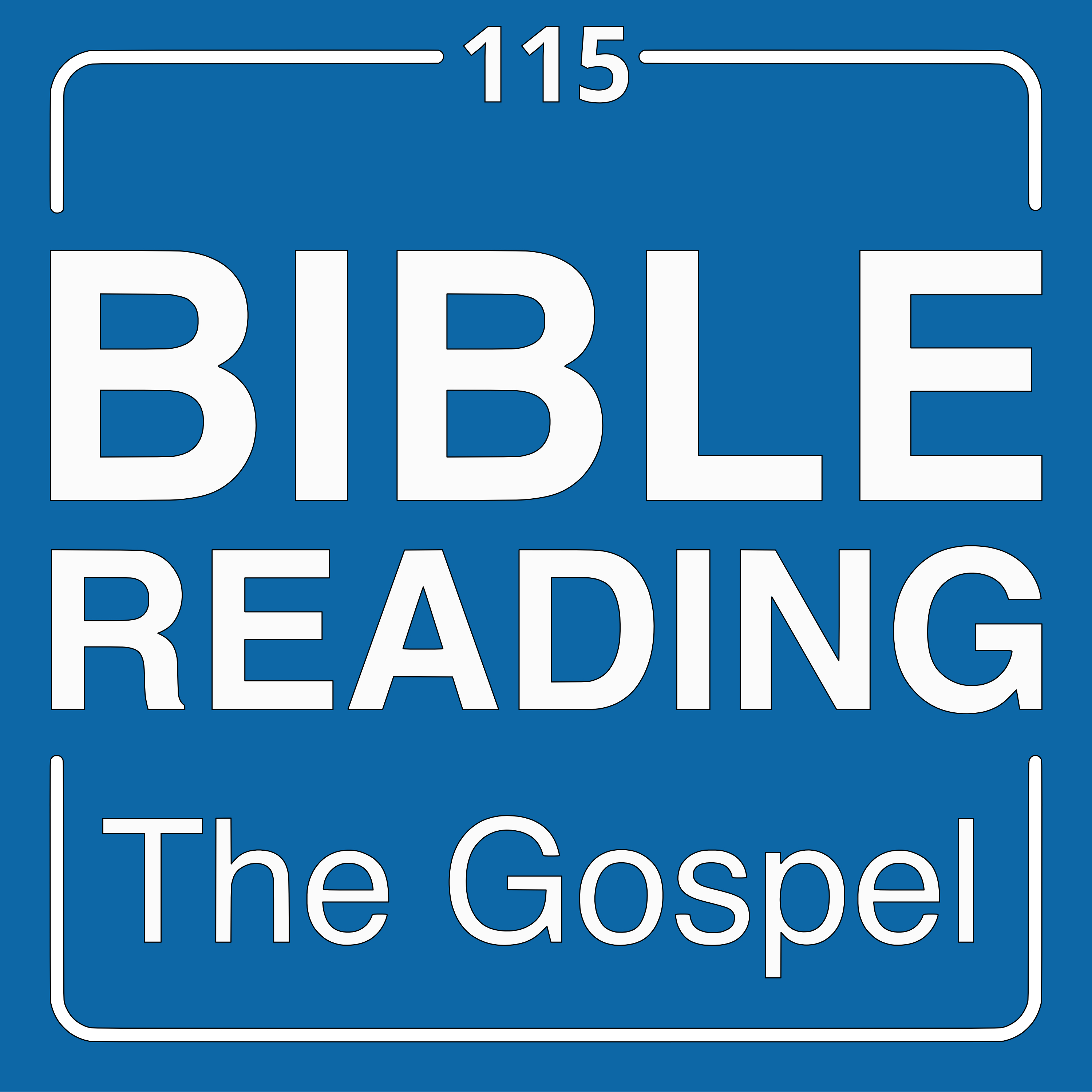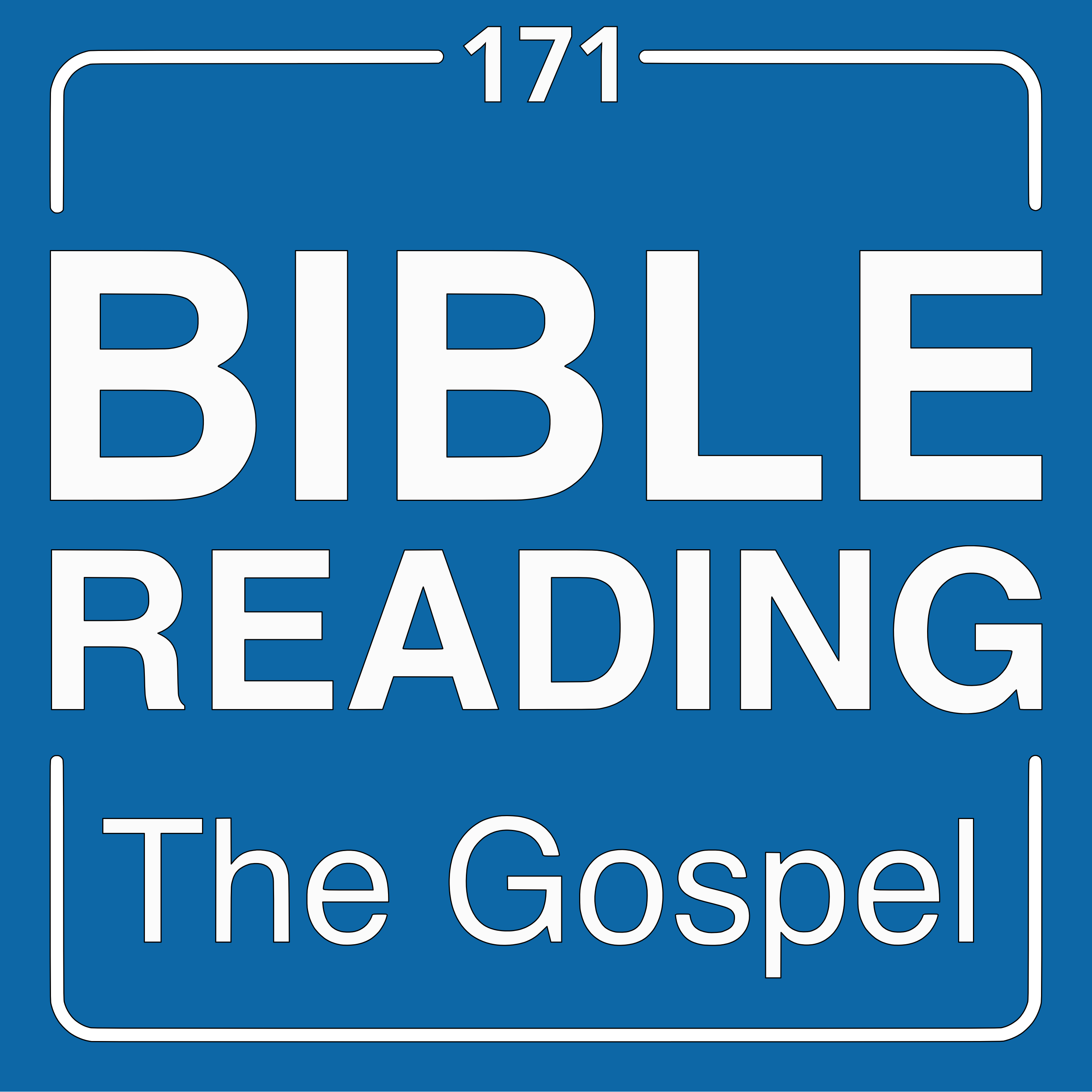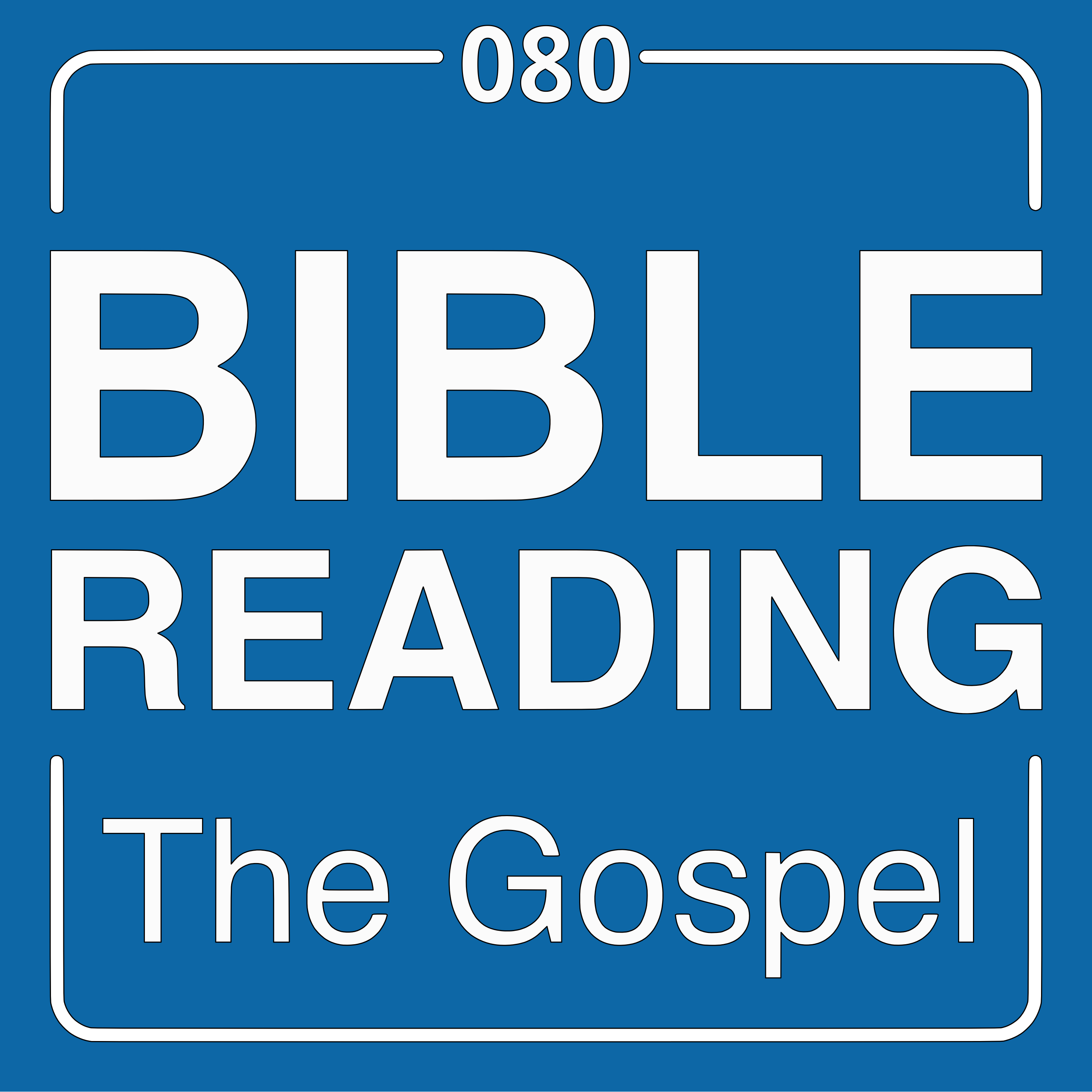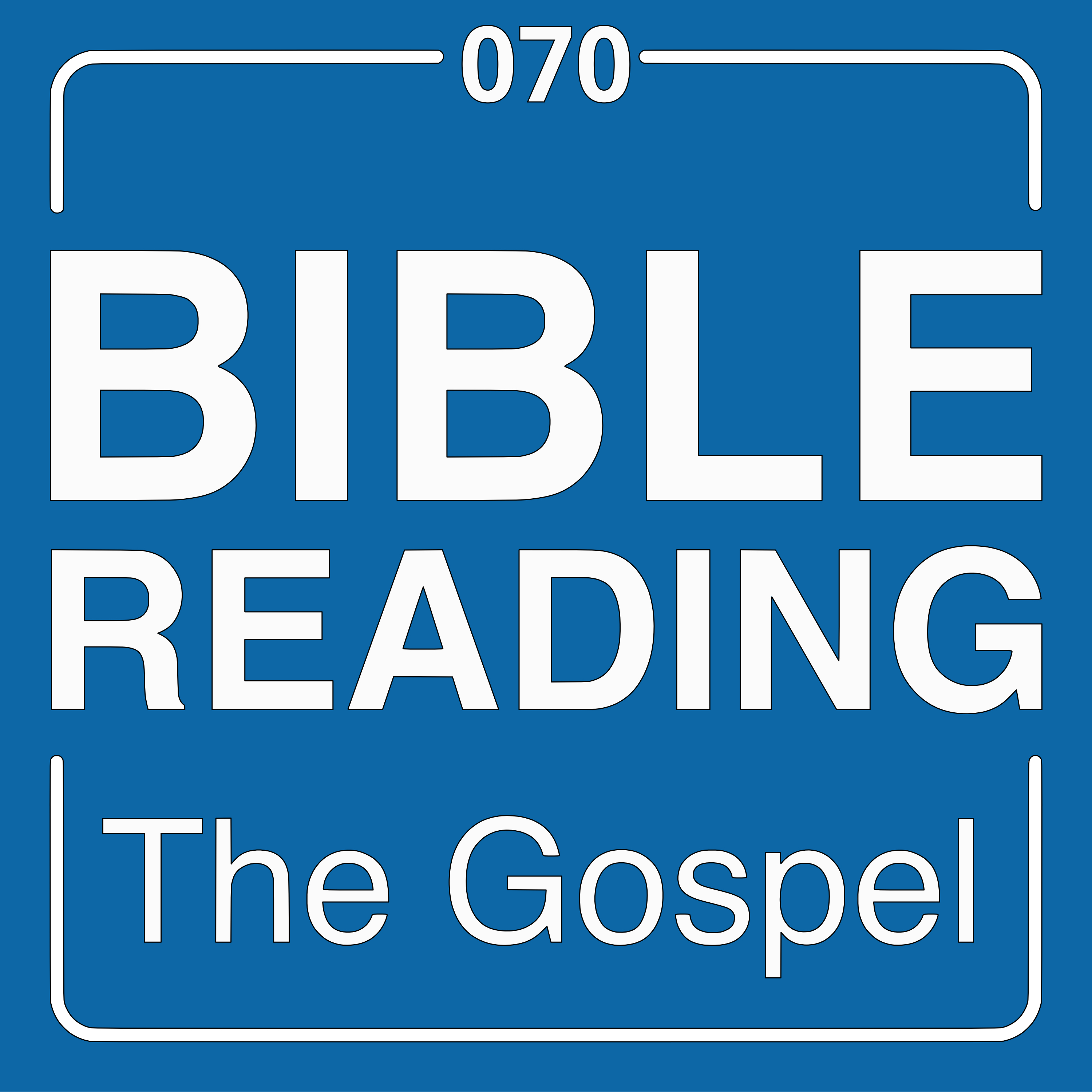Episode Transcript
[00:00:24] Speaker A: Hello.
[00:00:24] Speaker B: I'm Josh.
[00:00:25] Speaker A: And I'm Gabriel.
[00:00:26] Speaker B: And today on reading the Gospel, we are studying the event. A daughter of Abraham with a disabling spirit. This is found in Luke, chapter 13. And we're going to read from verse ten to 17.
[00:00:41] Speaker A: Now he was teaching in one of the synagogues on the Sabbath. And behold, there was a woman who had had a disabling it for 18 years.
She was bent over and could not fully straighten herself.
When Jesus saw her, he called her over and said to her, woman, you are freed from your disability.
And he laid his hands on her, and immediately she was made straight. And she glorified God.
[00:01:16] Speaker B: But the ruler of the synagogue, indignant because Jesus had healed on the Sabbath, said to the people, there are six days in which work ought to be done. Come on those days and be healed, and not on the Sabbath day. Then the Lord answered him, you hypocrites, does not each of you on the Sabbath untie his ox or his donkey from the manger and lead it away to water it? And ought not this woman, a daughter of Abraham, whom Satan bound for 18 years, be loosed from this bond on the Sabbath day?
As he said these things, all his adversaries were put to shame, and all the people rejoiced at the glorious things that were done by him.
To be fair, doesn't the leader of the synagogue have a point? Jesus, God gave us six days in which to work, and couldn't they come on the other days to be healed? Why do they need to come on.
[00:02:17] Speaker A: The Sabbath day if that triggered a big commotion in the house of God in the synagogue and would have transformed the holy day of worship into a healing marketplace and coming and going, maybe he had a point. But the end of this story of the healing, it says that as soon as this woman was untied from that bounding spirit, she glorified God, which was very appropriate not only for the place, but also for the time that is the purpose of the Sabbath, to reconnect us to God, to give him glory in song, in prayer, in teaching, in fellowship. And I think that was very much appropriate. And this is what Jesus Christ's point was. You untie an animal, and I cannot untie a human being who was bound by the evil spirit. So they had a problem with this woman coming into the Synagogue to be healed, but they had no problem with the evil spirit who walked into the synagogue holding this woman, tied, bound down and bent over. Yeah.
[00:03:37] Speaker B: And we see the Pharisees are willing to allow Moses. Moses gave the rule that, hey, if your donkey falls into a ditch, you can go get them. And so they make these variances. They're very nitpicky and very choosy on what is allowed and what is not allowed. And if it's allowed, they do it, no problem. But if they say it's not allowed, they fight it.
[00:04:05] Speaker A: So they went quite far, especially in the time of Jesus Christ at two rabbinical schools, hile and shamai, and later another one, Gamaliel. And each of these rabbinical schools had their own long list of things about what not to do on the Sabbath. And if you put all those lists together and you go into all the details there are more than 5000 items on that list. And most of them are quite ridiculous. This is what Jesus Christ said. You made some rules, man. Made by you guys, humans, which are inconsistent with your relationship with God. The purpose of the Sabbath, which was sanctified in Genesis, chapter two and set apart and blessed by God was to be a channel of communion with God to receive the life that flows from God, that transforms the heart and that new desire and glorious words and purity and sanctity flows back to God. The Sabbath was designed to be a channel of that communication with God, that communion with God.
[00:05:18] Speaker B: And so that gets back to my original question. Should she have come on another day of the week? And I don't know if you've ever been sick, like really sick on the Sabbath. It makes church no fun. The worst thing for me to do on the Sabbath is to stay home. I hate it. It's terrible. And to miss communion with my friends and my family and worshipping God together, it's just terrible. But to be there when I'm sick and do it not to be able to sing because my throat hurts. While there's joy in being there, there's also misery. And Jesus here is freeing this woman from this spirit so that she can enjoy the worship. She was there to worship God. She was there in that presence and in the pain and in the discomfort of being hunched over. And God released her from that.
[00:06:15] Speaker A: It seems that based on the text of this story that it was not the woman who asked for healing. It seems to be Jesus Christ who had mercy on her and initiated the process. Maybe she just came to be in the presence of God or maybe to listen to Jesus Christ. This is the last time in the four gospels when Jesus Christ teaches in a synagogue. Because in a month or so he'd go to Jerusalem, will teach in the temple and be crucified later.
[00:06:48] Speaker B: Yeah, my imagination runs wild with this story. One of the towns I was in, there was a man who was in town, and he was bent over like this. He was walking everywhere, bent over, and he would keep going. And I always wondered about him. I would drive by, I'd see him curious as to his life. And I wonder if Jesus had seen this woman in the temple before in his ministering, that she was just there around in the background and working quietly, worshiping God, not getting in anyone's way, but just living her life. And I wonder if there were. Jesus knew about this and had seen this. He wanted to do something nice for her. So he comes up to her on this, like you said this last time, that he's there and he heals her. And again, that's just my imagination running wild. But that's how I picture this story, that jesus sees someone who loves him, who was worshiping God, and does an act of kindness that she was not expecting.
[00:07:55] Speaker A: And also, Jesus Christ uses this event as a teaching moment to, on one side, reveal their hypocrisy, that is, lack of integrity, and on the other side, teaching them what was the creator's original intention for the Sabbath. And by the way, the Lord Jesus from the New Testament is the same Lord God from the Old Testament. He's the creator. He's the person who sanctified the Sabbath in Genesis, chapter two.
[00:08:24] Speaker B: Yeah, and the Bible says he's Lord even of the Sabbath, so he's in charge of it all. So how does this passage tell us about God? What does it tell us about God?
As I look at this passage, I see again a God that is more interested in our well being, our relationship.
He desires goodness and joy and peace for us.
He's a God that is willing to go against what we think, to provide care, comfort, and relief for those around.
[00:09:07] Speaker A: Yeah. Our God is a God of mercy. He's always touched by our infirmities.
And even beyond that, I see this synagogue and this event as a battleground for the cosmic conflict, because here you see Satan and one of his agents who has been bounding this woman for 18 years. And on the other side of the front line is Jesus Christ and his disciples. He just founded a christian church, training his disciples by word and this time by example.
And at the same time, Jesus Christ was moving that front line between the kingdom of darkness and that, and the kingdom of light. And the front line, that Sabbath day was going straight through that synagogue. So I see the great conflict being manifested here. And Jesus Christ came to preach the gospel and to cast out the demons. That means to expand his kingdom. Very nice.
[00:10:21] Speaker B: So what is this passage teaching us today, and what are we going to do about it?
[00:10:27] Speaker A: What I like is, and I like that you included that in the title.
Jesus Christ talks about this woman in verse 16 as a daughter of Abraham whom Satan had bound for years.
What I took from this story is that I like to see myself as a son of Abraham and by extension, the son of God. And all of us are both created, and secondly, adopted as children of God.
But even children of God can be bound by an evil spirit or disabling spirit.
And we can go to synagogue, we can go to church week by week. We can sing praises to God, and we can still be bound by Satan. That was, like, a shocking reality, because Jesus Christ does not accuse her that she is part of the enemy's kingdom.
Jesus says she is a daughter of Abraham. In the same way, I think that there is a time of transition in our lives when we move from the kingdom of darkness towards the kingdom of light. And sometimes we make a step forward and two steps backward. That line is not a straight line. It's like a zigzag.
And only God knows what is in our hearts. Only God knows our battles. Only God knows our failures. God knows our desires and our cries. During the night, the Bible said that Jesus called her over in verse twelve and said to her, I hear these words in my own years, in my heart, and I hope that every one of our listeners, every one of our listeners will hear the invitation of Christ.
[00:12:28] Speaker B: For me, as I look at this, I see the hypocrites, you hypocrites. And I wonder how many of us have wrong theology.
We were taught it by our parents or a pastor somewhere, or we misread or misinterpreted the Bible. And we stand on bad theology, and we accuse others of breaking that bad theology, because that's really what's happening here.
I wonder how we are being hypocrites. And I think the easy answer to this is to focus on ourselves, not go around and point the finger at others. Jesus says, take the plank out of your own eye before you try to remove the speck out of your brother's eye. Our focus should be on ourselves.
Then let others come to Jesus in their time and in their way to allow him to take them on their journey and not to try to manufacture and lead their journey for them.
[00:13:36] Speaker A: Beautiful.
I take both this event as well as the event in the previous episode with those 18 killed by the Tower of Siloam and those Galileans massacred by Pilate.
All these are calls to repentance are trying to grab our attention.
And the leader of the synagogue missed that opportunity, and Jesus Christ tries to correct it. Hey. Consider this event as a call to God, as a call to a pure theology, to trusting God and him alone. And he will provide.
Let's pray.
[00:14:19] Speaker B: Father God, we do want our trust in you. You alone.
We want to be ambassadors for you, to hold up your truth, but not to put burdens on other people that you do not place there yourself.
Father, I pray that we will surrender to you. And that, Father, if we are under the influence of evil spirits in any way, that we will be freed, that Jesus will set the captives free. May we look into ourselves more than judging those around us. In Jesus name we pray. Amen. Amen. Amen.



